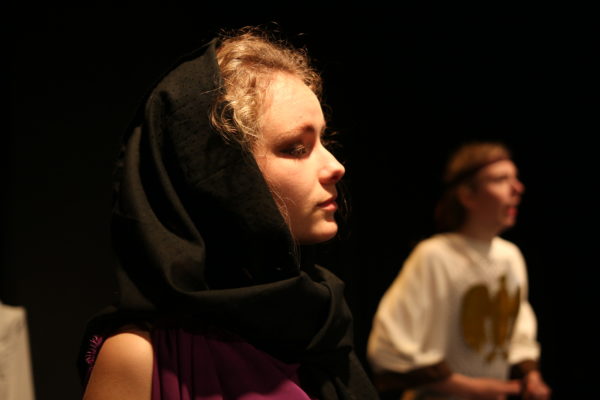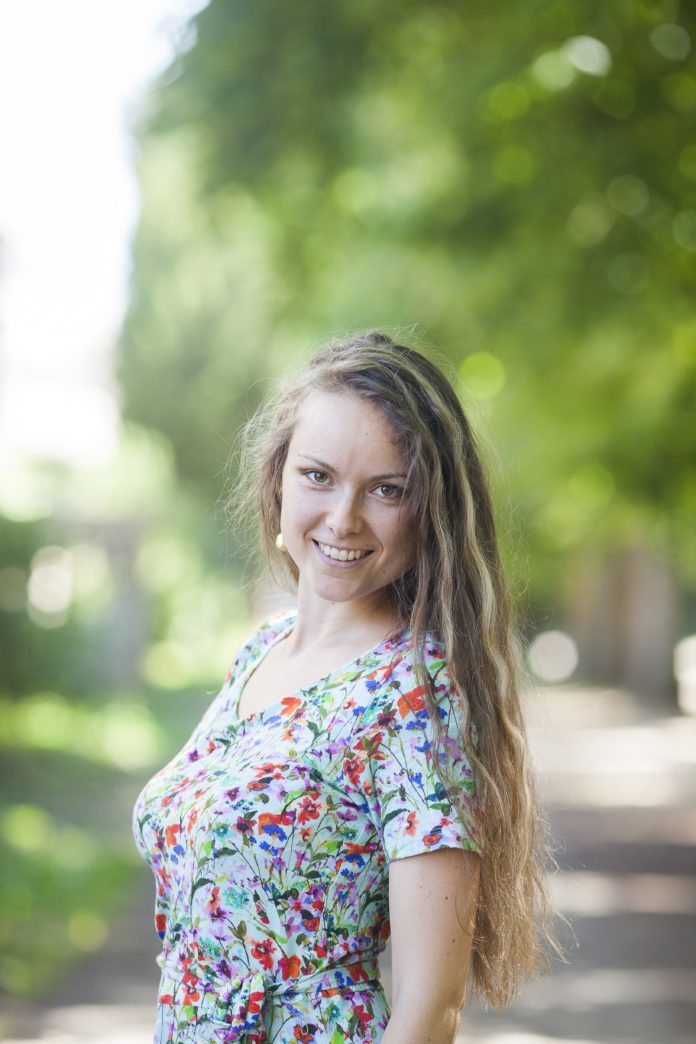YEREVAN — Last November 23, the young French mezzo-soprano Kami (Camille) Bordet-Sturla played the role of Orpheus in Gluck’s opera “Orpheus and Eurydice” (directed by Vram Karapetyan) at the Yerevan Opera Studio. She is not only a young singer with a wonderful voice and artistry, but also a true friend of the Armenian people. It has been a little more than a year since Kami got acquainted with the Armenian people and culture, but she has learned to speak Armenian fluently, as well as to read and write. Our conversation below also took place in Armenian.
Dear Kami, at first you studied history and political science, then also in an art school. After all of this, how did you become a singer — and such a good singer?
Thank you very much for your comment! My story with music started very early. I was a creative child: I was painting, writing, singing, I wanted to be an actress. We used to live near Dijon, Burgundy, where I attended a special school program and sang in the church every weekend. Then I learned the basics of piano, harpsichord, flute… Music has always been present in my life, but although there are many musicians in my family, they are not professionals. My father is a doctor and my mother a social worker. In their opinion, I had to study something “serious;” the possibility of becoming a singer didn’t even come to mind, so I chose the traditional path. Everything was interesting to me, especially the subjects that helped me understand the world, such as history and political science. When I was 13, I watched a documentary about Afghanistan that affected me so much that I decided to become a journalist to direct documentary films about far-away countries. When I was admitted to the Paris Institute of Political Science, I was scared of not being good enough and thought to myself, that I should focus on my studies: I dropped all of the artistic activities I was doing. But I was not happy, something was missing in my life. I was going to school with people from different social backgrounds, in a very Parisian atmosphere, some of them had a lot of money, some of them had been determined to go into politics from a very early age. This was unusual for me, and I was not feeling comfortable in this atmosphere. In the fourth year, I had to start working for a company, I discovered what it felt like to stay eight hours straight in front of a computer, to keep quiet and respectful while facing a boss whom I completely disagreed with, and I hated it. I felt that if I kept going in this direction, maybe I would be very successful and earn a lot of money, but I would never be happy. So I tried another way. I entered the National Superior School of Decorative Arts in Paris, while finishing my master’s degree. Once my master’s degree was completed, and since I had a little more time, I decided to go back to the conservatory. Gradually I realized how much I loved to sing, and my interest for the stage returned. On stage, I feel free: it is similar to life, but without limits: everything is possible, every sensation is multiplied. It is an incredible feeling. That’s why I then went to the Basel Conservatory.
You mainly have sung in Baroque operas, in less staged works. Is it your choice or is it what suits your voice?
Both. My family has always listened to a lot of Baroque music, and I naturally went for that style. At the same time, since I’m a light coloratura mezzo, I feel very comfortable in the Baroque and classical repertoire. It is important for producers to know the identity of the singer and to offer appropriate roles, and so far, baroque music has brought me luck. For example, last summer I started working with the famous Catalan baroque conductor Jordi Savall and I was accepted into a French program that helps young singers to sing in front of important people and find a job. I sang with them the role of Nero in Handel’s “Agrippina,” which was a fantastic experience.

Andrea Bocelli has said: “An opera singer is like an athlete before the match.” Is he right?










